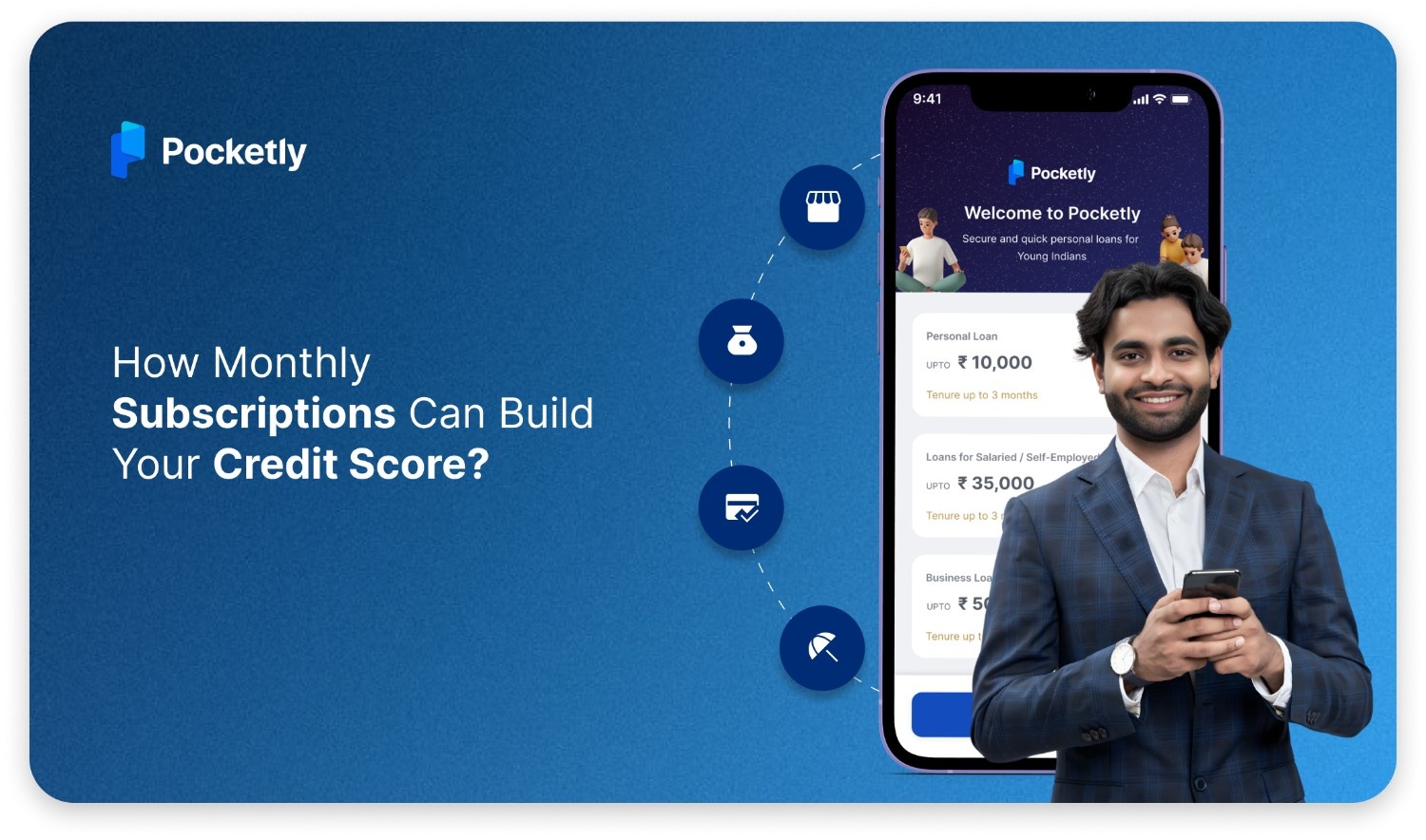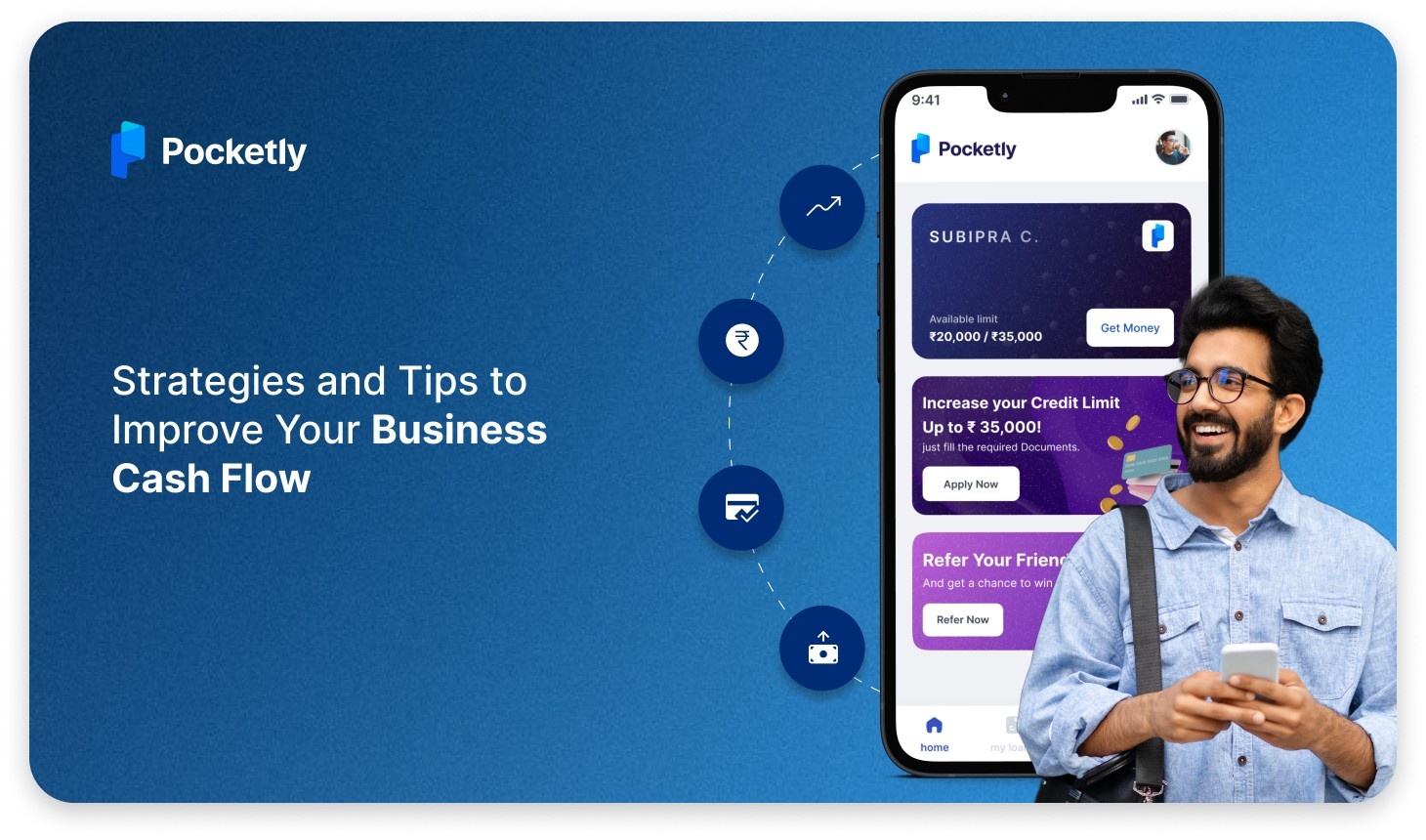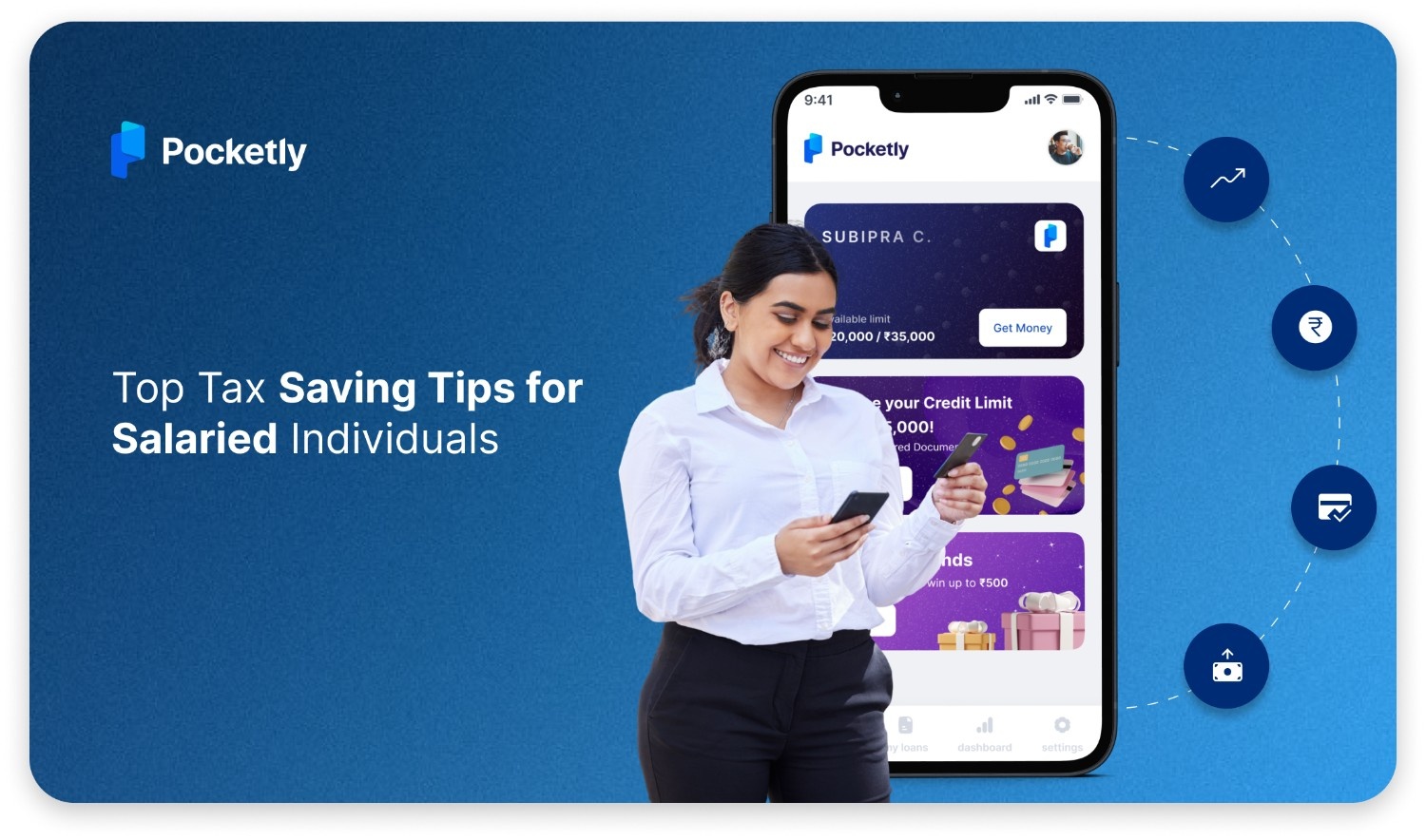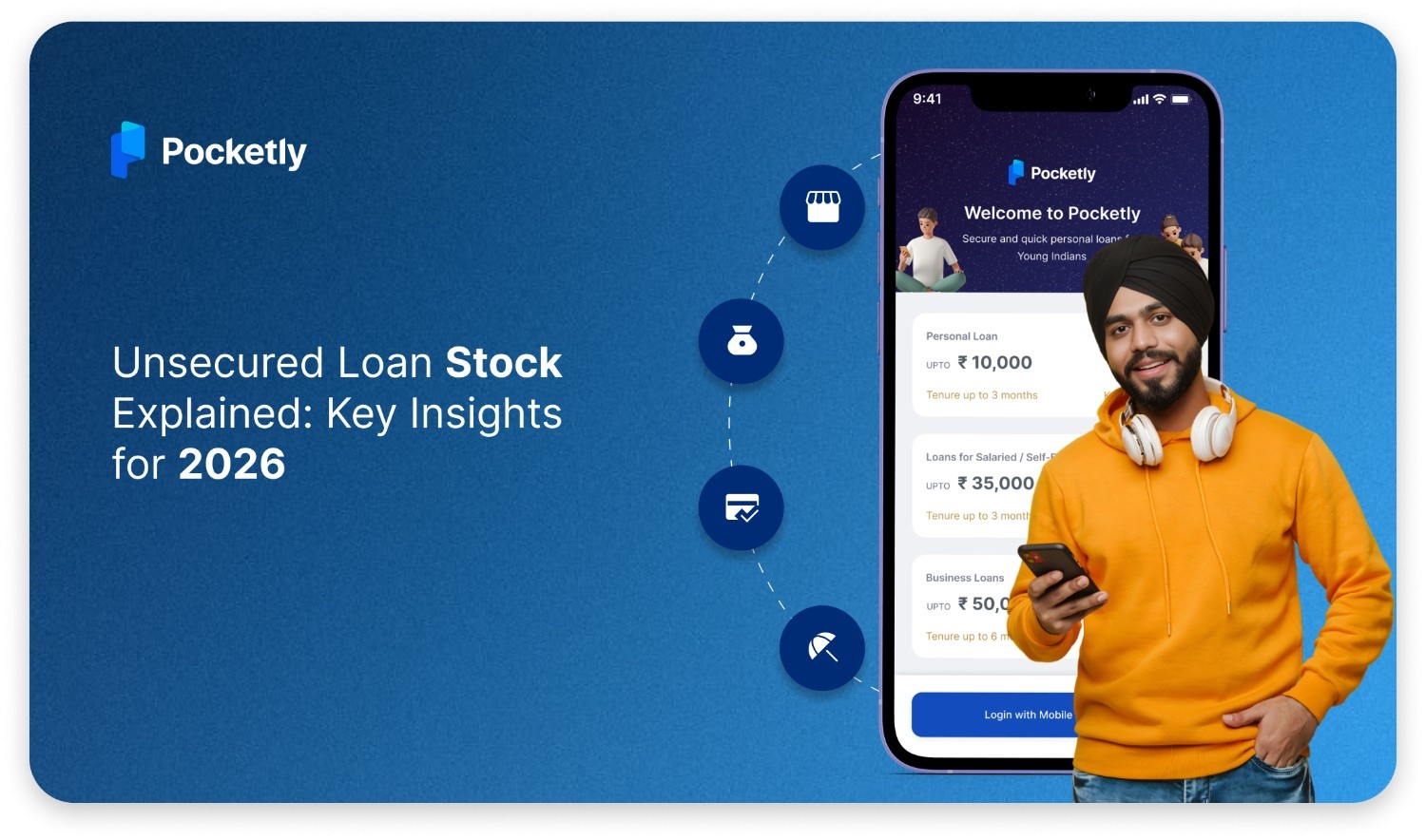Have you ever checked your CIBIL score only to find that an overdue payment has significantly affected your creditworthiness? If so, you're not alone. An overdue payment, whether from a credit card, loan, or utility bill, can leave a lasting mark on your credit report, affecting your ability to secure future loans or get the best interest rates.
But here's the good news: correcting overdue payment records and improving your CIBIL score is not as difficult as it may seem. You can repair your credit history and get back on track with the proper steps and strategies.
In this blog, we’ll walk you through everything you need to know about overdue payments, how they impact your CIBIL score, and most importantly, how to fix them and boost your credit score back up. By the end, you'll be equipped with actionable tips to repair your credit and ensure it stays healthy for the future.
What is an Overdue Payment in Your CIBIL Report?
An overdue payment in your CIBIL report refers to any payment not made by the due date, typically more than 30 days past due. These overdue payments can be related to credit cards, personal loans, auto loans, or even utility bills. The moment you miss a payment, the lender reports it to the credit bureaus, which can negatively impact your CIBIL score.
Overdue payments are considered one of the most significant factors that lower your credit score. The longer the payment remains overdue, the more severe the impact on your credit report. It’s important to understand that even a single missed payment can affect your creditworthiness for several years, making it harder to secure future loans, credit cards, or other financial products.
Understanding the reasons behind overdue payments helps you gain better control over your financial habits. Let's explore what causes these payments to appear on your CIBIL report and how you can address them moving forward.
Why Does an Overdue Payment Appear in Your CIBIL Report?
Overdue payments are a major red flag in your CIBIL report and can have a significant impact on your credit score. Understanding why they appear and how they affect your financial health is crucial for effective credit management.
Here’s why overdue payments show up in your CIBIL report:
- Missed Payments: If you fail to make a payment by the due date, it is classified as overdue. Lenders report this delay to credit bureaus, which then reflect it in your credit report. Overdue payments usually appear after a grace period, which varies by the lender.
- Late Payments Due to Cash Flow Problems: Financial challenges, such as an unexpected expense or lower-than-expected income, can prevent you from paying your bills on time. This will lead to an overdue status on your account, and depending on the lender's policy, it could result in your account being reported as overdue.
- Incorrect Reporting: Sometimes, overdue payments can be reported due to an error. If you’ve made the payment on time and it’s still marked overdue, this could be a mistake on the lender's part or with the credit bureau. It’s essential to check your report to correct such errors regularly.
- Partial Payments: If you make a partial payment towards your dues and the remainder is left unpaid, the unpaid amount can be reported as overdue. A partial payment doesn’t clear the full balance, so the lender will mark the unpaid portion as overdue.
- Ignoring Minimum Payments: If you only make the minimum payment on your credit card or loan, but it’s insufficient to cover the outstanding amount, your payment may still be flagged as overdue. This can lead to late fees and affect your CIBIL report negatively.
It’s important to recognise how overdue payments can affect your credit score to ensure that your credit history remains strong. Let’s look at the direct consequences on your CIBIL score and how these unpaid dues can shape your financial future.
How Overdue Payments Impact Your CIBIL Score
The impact is often significant and can linger on your credit report for a long time. Here’s how overdue payments affect your credit score:
- Immediate Negative Impact: As soon as a payment is overdue, it is reported to the credit bureaus, which marks it as a negative event in your credit history. This immediate impact reduces your credit score, sometimes by a significant margin.
- Accumulation of Penalties and Fees: Overdue payments often attract late payment fees and higher interest rates. These additional costs increase your debt load, making it harder to pay off your balance and improving your credit utilization ratio. A higher credit utilization ratio can further lower your score.
- Long-Term Effects: The damage caused by an overdue payment can last for several years, depending on the severity of the delay. Sometimes, the mark can stay on your report for up to three years. This can limit your ability to get approved for loans or credit cards.
- Interest Rate Hikes: Lenders may view you as a higher-risk borrower once an overdue payment is reported. This can result in higher interest rates for any future loans or credit cards. Essentially, the higher your perceived risk, the higher your interest rates will be.
- Reduced Credit Limit: If your lender notices a pattern of overdue payments, they may reduce your credit limit as a precautionary measure. This reduces your overall available credit, which can lead to an increase in your credit utilization ratio, negatively impacting your score.
It’s important to keep track of your payments and address overdue accounts as soon as possible to prevent these adverse effects from dragging down your credit score. Let’s now explore the steps you can take to correct overdue payments and begin restoring your credit health.
Curious about the relationship between overdue payments and your overall financial health? Explore further in managing your credit score by reading Understanding the Meaning and Impact of Marginal Standing Facility (MSF) Rate.
Steps to Correct Overdue Payment Records and Improve Your CIBIL Score
Correcting overdue payment records on your CIBIL report can significantly improve your credit score, but it’s essential to take a methodical and well-informed approach. Here are the crucial steps to address overdue payments and recover your credit standing.
Step 1: Review Your Credit Report Thoroughly
Before taking any action, it’s important to understand the extent of the overdue payments on your CIBIL report. Here’s how you can go about it:
- Check for Accuracy: Look for any discrepancies, such as payments that have been marked as overdue due to technical issues or errors in reporting.
- Identify All Affected Accounts: Identify which accounts have overdue payments recorded and their current status.
- Get Detailed Information: Understand the date when the payment became overdue, the original due amount, and whether any fees or penalties have been added.
Tip: Regularly monitoring your credit report is a good habit to prevent surprises and stay on top of your credit health.
Step 2: Clear Outstanding Payments
After reviewing your credit report, focus on settling your overdue payments:
- Contact Your Lender: Reach out to the lender to discuss your overdue account and request the exact amount to pay. It’s crucial to ensure that you pay the correct amount.
- Settle the Debt: Pay off the overdue balance in full to prevent further penalties and stop it from continuing to affect your credit score.
- Keep Records: Always keep receipts or documentation of payments made. Having proof will be useful in case of any future disputes.
Tip: If paying the entire overdue amount in one go is difficult, ask the lender for a repayment plan or a possible settlement to help you manage the repayment effectively.
Step 3: Request for Correction or Removal
Once the overdue payment has been settled, it’s time to get the record updated:
- Request a Rectification: Write to the lender to inform them of the payment you’ve made and request the correction of your credit report.
- Check for Removal of Negative Report: If the overdue payment was an error, ask for a formal request to have it removed from your report.
- Formal Request to Credit Bureau: If the lender doesn’t take immediate action, you can directly approach the credit bureau (like CIBIL) and ask them to remove or update the report based on your corrected payment status.
Tip: Always get confirmation in writing that the issue has been rectified, especially if you’ve made an agreement with the lender.
Step 4: Build Positive Credit Habits
As you work on clearing up overdue payments, it’s important to focus on rebuilding your credit:
- Make Timely Payments: Going forward, ensure you always make payments on time. Set reminders or automate payments to avoid future overdue situations.
- Lower Your Credit Utilization: Keep your credit utilization ratio below 30% to demonstrate responsible borrowing behavior. This will have a positive impact on your credit score.
- Increase Your Credit Limit: A higher credit limit can improve your credit utilization ratio and positively impact your credit score, especially if you manage the account responsibly.
Tip: Regular, responsible credit usage is essential for improving your CIBIL score in the long term.
Step 5: Seek Professional Help (If Needed)
If you’re struggling to clear overdue payments or negotiate with lenders, it’s helpful to seek professional financial advice:
- Credit Counseling Services: Consult with a credit counselor who can guide you on managing your finances and repairing your credit.
- Debt Settlement or Consolidation: In extreme cases, a professional can help you settle debts or consolidate them into a more manageable payment plan.
Tip: Don’t hesitate to seek professional advice if you feel overwhelmed. Financial experts can provide insights tailored to your situation, enabling you to make informed decisions.
By following these steps, you can effectively address overdue payments, clear your record, and improve your credit standing.
If you're looking for guidance on managing loans and improving your credit, Pocketly offers hassle-free, flexible loan solutions without needing a perfect credit score. Download the Pocketly app today and take control of your financial journey!
How to Prevent Overdue Payments in the Future
Preventing overdue payments is essential for maintaining a good credit score and managing your financial stability. Here are some effective strategies to ensure you never miss a payment again:
Automate Your Payments
Setting up automatic payments is one of the simplest and most effective ways to avoid overdue payments. This can be done through your bank’s online banking services or by enabling autopay for credit cards, loans, and utility bills.
- How It Helps: With auto-pay, you can ensure that your payments are made on time every month without having to remember the due dates.
- Tip: Always set up auto-pay for at least the minimum payment due to avoid penalties and negative marks on your credit.
Set Payment Reminders
If you prefer not to use automatic payments, setting up reminders can be an effective way to stay on top of your financial commitments.
- How It Helps: You can use your phone’s calendar, a budgeting app, or online reminders to alert you a few days before the payment is due.
- Tip: Set reminders at least two days before the due date to give yourself time to make the payment.
Keep Track of Due Dates with a Financial Calendar
Maintaining a financial calendar, whether digital or on paper, allows you to keep track of all your bills, loans, and credit card payments.
- How It Helps: You can visualise your due dates, ensuring that nothing slips through the cracks.
- Tip: Colour-code your bills to differentiate between types of payments—this can help you stay organised.
Review Your Bills Regularly
Take the time to review your credit card statements, loan invoices, and utility bills every month. This helps you stay aware of your financial obligations and spot any discrepancies early.
- How It Helps: Regular bill reviews help you identify potential issues like billing errors or sudden price hikes that could affect your budget.
- Tip: Schedule a monthly session to review all your bills and payments, ensuring everything is in order.
Prioritise High-Interest Debts
If you have multiple loans or credit card bills, it’s wise to prioritise paying off those with the highest interest rates first.
- How It Helps: Paying off high-interest debts faster not only reduces the risk of overdue payments but also saves you money in the long term.
- Tip: Consider the avalanche method to focus on paying down the highest-interest debt first while making minimum payments on others.
Build an Emergency Fund
An emergency fund is essential for ensuring you don’t miss payments due to unexpected financial setbacks, such as job loss or medical emergencies.
- How It Helps: An emergency fund acts as a safety net, covering your essential expenses during difficult times.
- Tip: Aim to save three to six months’ worth of living expenses in an easily accessible account.
Opt for Flexible Payment Options
If your income is inconsistent, consider negotiating flexible payment plans with your creditors or lenders. Some financial institutions offer grace periods or restructuring options, allowing you to adjust the terms of your loan or credit card payments based on your financial situation.
- How It Helps: Flexible payment options help you maintain your payment schedule, even during financial hardship.
- Tip: Don’t hesitate to reach out to your lender if you’re struggling to make payments they may offer relief options to ease your burden.
Avoid Overextending Credit
Lastly, avoid using more credit than you can comfortably manage. Keep your credit utilisation ratio low, and be mindful of taking on too many credit lines or loans simultaneously.
- How It Helps: By managing your credit wisely, you ensure that your monthly payments stay within your budget, reducing the risk of overdue payments.
- Tip: Be realistic about your borrowing needs and only use credit for things that are necessary and within your financial means.
By taking these steps, you can effectively prevent overdue payments and the negative impact they can have on your credit score and overall financial health. To avoid the short-term consequences of overdue payments, it's crucial to consider their lasting impact if left unaddressed. Over time, these unresolved issues can cause more significant financial setbacks.
To further enhance your credit management skills, you may find it useful to explore Explaining the Vital and Positive Role of Credit with Examples.
The Long-Term Effects of Uncorrected Overdue Payments
When overdue payments are left uncorrected, their consequences extend far beyond immediate penalties. These unresolved issues can affect not only your credit score but also your ability to secure future financial products. Here's how:
1. Long-Term Damage to Credit Score
Overdue payments' most obvious long-term effect is a decrease in your credit score. A poor credit score can haunt you for years, making it difficult to:
- Get Approved for Loans: Whether you’re applying for a mortgage, personal loan, or car loan, a low credit score makes it much harder to qualify.
- High-Interest Rates: Even if you’re approved, your interest rates will be significantly higher due to your credit history, costing you more over time.
2. Difficulty in Securing Credit in the Future
Overdue payments that have not been addressed or corrected can lead to a history of defaults or late payments on your credit report. Lenders will see this as a sign of financial instability, making it difficult to secure new credit lines or loans.
3. Increased Loan Costs
Once a loan or credit card becomes overdue and remains unresolved, it can lead to higher borrowing costs due to both high-interest rates and additional charges. What was once a manageable debt can snowball into a much larger financial burden.
4. Negative Impact on Employment Opportunities
Many employers, especially those in finance, insurance, and other sectors requiring financial trustworthiness, perform credit checks before hiring. Unresolved overdue payments can lower your chances of landing certain jobs, especially in roles that involve managing money or making financial decisions.
5. Legal Ramifications
In extreme cases, creditors may take legal action when overdue payments are left unresolved. This could result in:
- Court Orders: Legal processes can be initiated to recover the owed amount, which might involve garnishing wages or freezing assets.
- Bankruptcy: In the worst-case scenario, repeated non-payment could lead to bankruptcy, which will stay on your record for several years and significantly impact your financial stability.
6. Compromised Personal Relationships
Financial stress from overdue payments can spill over into personal relationships. If you’re struggling to pay off debt, it can affect your mental well-being, and the tension could affect your relationships with family and friends.
By addressing overdue payments promptly, you can prevent these long-term consequences and regain control over your financial future.
To address overdue payments, one must take corrective action and consider practical solutions for managing finances better. If you're struggling with overdue payments or have a history of financial setbacks, Pocketly could be your solution. Pocketly helps you access quick and easy loans with minimal documentation, empowering you to take charge of your finances and avoid further issues with overdue payments.
Pocketly: A Solution for Financial Flexibility and Better Credit Management
If you’re worried about overdue payments affecting your financial stability, Pocketly offers a smart, flexible alternative. With Pocketly’s digital lending platform, you can get access to personal loans without the burden of complicated paperwork or rigid requirements. Here’s how Pocketly can help:
- Quick Loan Approvals: No need to wait weeks for loan approval. Pocketly ensures that your application is processed swiftly, providing you with the financial assistance you need to manage your debt or tackle any financial emergency.
- Easy-to-Use Application Process: The application process with Pocketly is simple and straightforward, requiring minimal documentation. You can apply using your Aadhaar or PAN card and complete the process directly through their app.
- Loans with Flexible Repayment Options: Pocketly offers flexible repayment terms that are suited to your financial situation. Whether you need a small loan or a larger amount, you can choose a repayment schedule that aligns with your monthly budget.
- Transparent Fees and Low-Interest Rates: With Pocketly, there are no hidden fees. The loan’s interest rates are clear, and the processing fee is minimal. You’ll always know exactly what you’re paying, helping you maintain better control of your finances.
- No PAN Card Required: Worried about not having a PAN card? Pocketly doesn’t require it for loan approval, making it an ideal solution for individuals who may not have a PAN card but need urgent access to funds.
- Helps You Avoid Overdue Payments: By using Pocketly for small, short-term financial needs, you can ensure that your payments are made on time, which helps in improving your credit score and avoiding overdue payments.
Applying for a loan with Pocketly is easy. Simply download the Pocketly app, fill out the application form, and submit the required documents. Once approved, the loan amount is credited directly to your bank account, giving you quick access to the funds you need.
If you find yourself struggling with overdue payments or financial stress, Pocketly can be the financial tool you need to regain control. Contact us today and start improving your credit health!
Conclusion
Managing overdue payments and improving your CIBIL score doesn’t have to be overwhelming. With the right steps and solutions, you can take control of your financial future and ensure that overdue payments don’t hold you back. By staying proactive, correcting overdue records, and adopting financial tools like Pocketly, you can maintain your credit health and achieve your financial goals. Pocketly makes it easy to manage your finances with accessible loans and flexible repayment options, even if you're dealing with financial setbacks.
If you want a quick, hassle-free loan to bridge your financial gaps, download Pocketly on Android or iOS and take the first step towards better financial management!
FAQs
What happens if I miss an EMI payment on my personal loan?
Missing an EMI payment can negatively impact your credit score and result in additional fees or penalties from the lender.
Can I fix an overdue payment record on my CIBIL report?
Yes, you can request to correct overdue payments on your CIBIL report by settling the outstanding amount and working with your lender to update the record.
How long does an overdue payment stay on my credit report?
Overdue payments can stay on your credit report for up to seven years, depending on the severity of the delinquency.
What is the best way to prevent overdue payments in the future?
Setting up automatic payments, tracking your payment due dates, and keeping an emergency fund can help prevent missed payments.
Does correcting an overdue payment improve my credit score?
Yes, once the overdue payment is settled and reflected on your credit report, your score may improve over time if you continue managing your finances responsibly.












